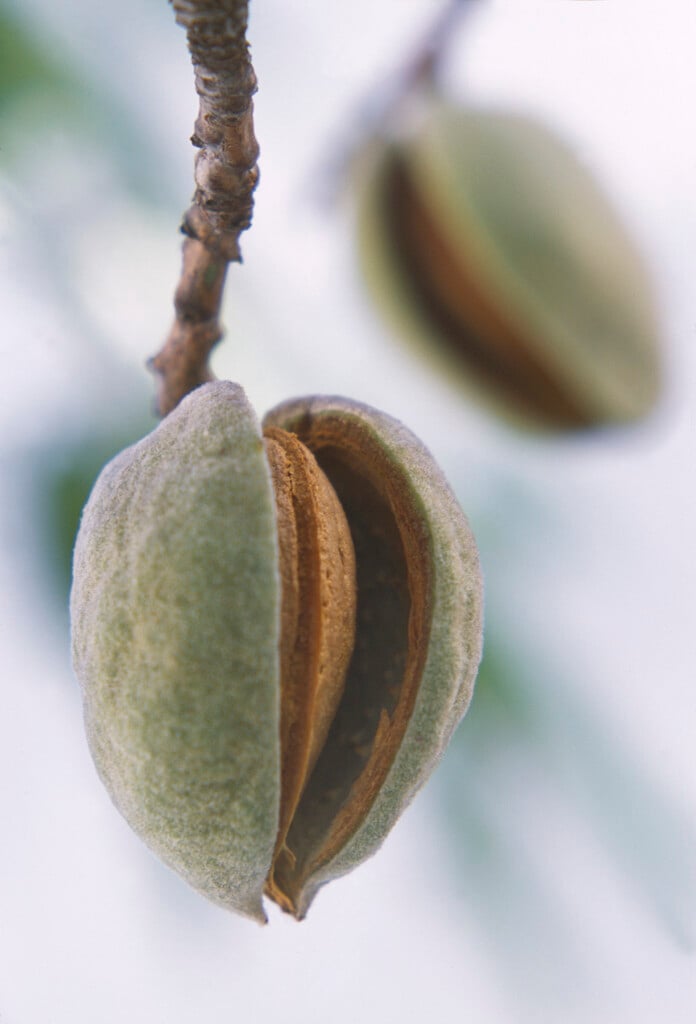Prunus dulcis 'Sweet Almond'
almond
An upright, spreading, deciduous tree with lance-shaped, toothed dark green leaves. Blossom is pink or white, scented, and produced on bare stems in early spring, followed by oval-shaped green fruit encasing edible almond nuts.
Other common names
almond oil plantsweet almond
Size
Ultimate height
4–8 metresTime to ultimate height
10–20 yearsUltimate spread
4–8 metresGrowing conditions
Moisture
Moist but well–drainedpH
Acid, Alkaline, NeutralColour & scent
| Stem | Flower | Foliage | Fruit | |
| Spring | White Pink | Green | ||
|---|---|---|---|---|
| Summer | Green | |||
| Autumn | Green Yellow | Green Brown | ||
| Winter |
Position
- Full sun
Aspect
South–facing or West–facing
Exposure
Sheltered Hardiness
H5Botanical details
- Family
- Rosaceae
- Native to GB / Ireland
- No
- Foliage
- Deciduous
- Habit
- Spreading branched
- Genus
Prunus can be deciduous or evergreen trees or shrubs with showy flowers in spring, and often good autumn foliage colour. Some have edible fruit in autumn, and a few species have ornamental bark
- Name status
Correct
- Plant range
- S Europe, SW Asia
How to grow
Cultivation
Plant in a sunny, sheltered site with moist but well-drained, fertile soil, away from frost pockets. Can be grown as a standard or bush in milder areas, or fan-trained against a south-facing wall; final size will depend on the rootstock used. Almond blossom is very early, so flowers may need protection from frost.
Propagation
Propagate by grafting in late winter
Suggested planting locations and garden types
- Cottage and informal garden
- City and courtyard gardens
- Wildlife gardens
- Edible fruit
Pruning
Pruning group 1. Prune in mid-summer if silver leaf is a problem
Pests
May be susceptible to aphids; caterpillars and birds can cause damage
Diseases
May be susceptible to peach leaf curl, silver leaf, honey fungus, bacterial canker and brown rot. High Risk Host for Xylella fastidiosa
Get involved
The Royal Horticultural Society is the UK’s leading gardening charity. We aim to enrich everyone’s life through plants, and make the UK a greener and more beautiful place.
